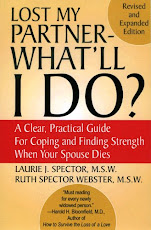
It’s difficult to “be patient” while the pain of your loss feels so intense. But the saying, “time heals” is actually true.
It can also be hard to tolerate the unpredictability of the experience.
As we discuss in Part 1 of our 3 posts, When Will This Be Over?:
“The mourning process is often described as feeling as though you’re stuck on a roller-coaster.
Nobody chooses this ride, but once it starts, you have to hold on tight and trust you’ll eventually be back on solid ground. The first few dips can be unsettling, and just when the track straightens out and you think you can finally relax, there may be a few more dips before you get to the finish.”
(Read more)
